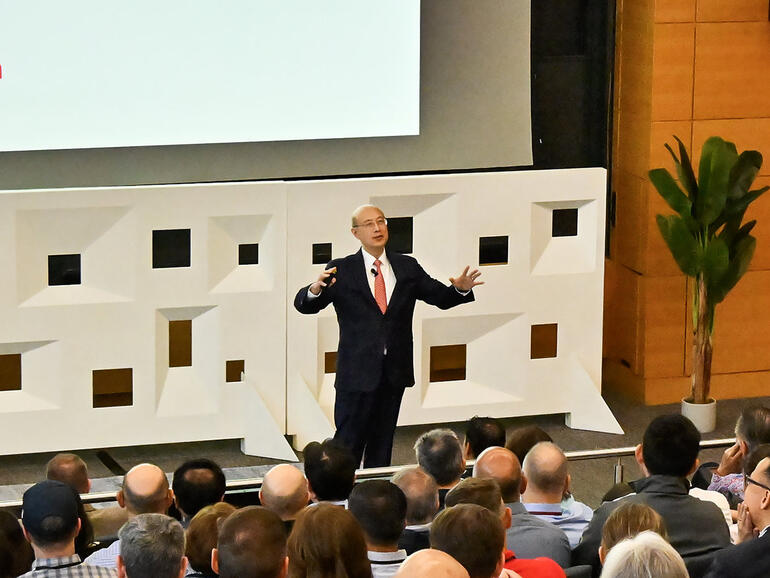New MIT Sloan courses focus on deep learning, gen AI, and fintech
Additions to the MIT Sloan 2025 – 2026 course list include Intensive Hands-On Deep Learning, AI and Money, and The Arrhythmia of Finance.

Faculty
Andrew W. Lo is the Charles E. and Susan T. Harris Professor, a Professor of Finance, and the Director of the Laboratory for Financial Engineering at the MIT Sloan School of Management.
Lo's current research spans four areas: evolutionary models of investor behavior and adaptive markets, artificial intelligence and financial technology, healthcare finance, and impact investing. Recent projects include: an evolutionary explanation for bias and discrimination and how to reduce their effects; a new analytical framework for measuring the impact of impact investing; the potential for large language models to provide trustworthy financial advice to retail investors; new statistical tools for predicting clinical trial outcomes, incorporating patient preferences into the drug approval process; and accelerating innovation in deep tech via novel business, financing, and payment models.
Lo has published extensively in academic journals (see http://alo.mit.edu) and his most recent book is The Adaptive Markets Hypothesis: An Evolutionary Approach to Understanding Financial System Dynamics. His awards include Batterymarch, Guggenheim, and Sloan Fellowships; the Paul A. Samuelson Award; the Eugene Fama Prize; the IAFE-SunGard Financial Engineer of the Year; the Global Association of Risk Professionals Risk Manager of the Year; the Harry M. Markowitz Award; the Managed Futures Pinnacle Achievement Award; one of TIME’s “100 most influential people in the world”; and awards for teaching excellence from both Wharton and MIT. His book Adaptive Markets: Financial Evolution at the Speed of Thought has also received a number of awards. He is a Fellow of the American Finance Association, Academia Sinica, the American Academy of Arts and Sciences, the Econometric Society, and the Society of Financial Econometrics.Lo is also a principal investigator at the MIT Computer Science and Artificial Intelligence Laboratory, an external faculty member of the Santa Fe Institute, and a research associate of the National Bureau of Economic Research. He has co-founded several asset management and biotech companies, and sits on the boards of several for-profit and non-profit public and private healthcare organizations.Lo holds a BA in economics from Yale University and an AM and PhD in economics from Harvard University.
Thakor, Richard T. and Andrew W. Lo. Research Policy. Forthcoming. SSRN Preprint.
Li, Xuelin, Andrew W. Lo, and Richard Thakor. Review of Finance. Forthcoming. SSRN Preprint.
Lo, Andrew W., and Ruixun Zhang. Management Science. Forthcoming. SSRN Preprint.
Chaudhuri, Shomesh E., Zied Ben Chaouch, Brett Hauber, Brennan Mange, Mo Zhou, Stephanie Christopher, Dawn Bardot, Margaret Sheehan, Anne Donnelly, Lauren McLaughlin, Brittany Caldwell, Heather L. Benz, Martin Ho, Anindita Saha, Katrina Gwinn, Murray Sheldon, and Andrew W. Lo. Journal of Biopharmaceutical Statistics. Forthcoming.
Lo, Andrew W., Egor Matveyev, and Stefan Zeume, MIT Sloan Working Paper 6163-20. Cambridge, MA: MIT Sloan School of Management, June 2025.
Lo, Andrew W., Ruixun Zhang, and Chaoyi Zhao, MIT Sloan Working Paper 7264-25. Cambridge, MA: MIT Sloan School of Management, February 2025.

Additions to the MIT Sloan 2025 – 2026 course list include Intensive Hands-On Deep Learning, AI and Money, and The Arrhythmia of Finance.

Faculty presented the latest insights from their work in corporate leadership, precision medicine, climate policy, personal finance, and deep tech during MIT Sloan Reunion 2025.
Professor Andrew W. Lo is currently testing to see whether a generative AI model could pass the fiduciary exam. The aim is to assess whether this means AI would be able to provide an investor with sound advice.
Professor Andrew W. Lo said he believes that "perhaps within five years, AI will be able to replicate the investment style of renowned investor Warren Buffett." He noted that if AI can further develop capabilities similar to human intuition, the accuracy of medium and long-term inferences will be greatly improved. He also warned that the widespread use of AI could introduce new vulnerabilities. "If human intervention becomes difficult, the market could experience a rapid, flash crash-like decline, triggering a chain reaction of financial crises."
Professor Andrew W. Lo has stated that a fully reliable decision-making AI is still "five years away," saying: "Until an AI assumes full fiduciary duty, it remains a smart toy, not a trustworthy advisor."
"Careful risk management enables investments with significant results," said professor Andrew W. Lo. "In the healthcare sector, investments in deep-tech have produced more drugs on the market than the major players. It's therefore an example of how thoughtful risk management can yield enormous opportunities. In this specific case, products that enhance our most precious asset: life."
This online program from the MIT Sloan School of Management and the MIT Computer Science and Artificial Intelligence Laboratory (CSAIL) challenges common misconceptions surrounding AI and will equip and encourage you to embrace AI as part of a transformative toolkit. With a focus on the organizational and managerial implications of these technologies, rather than on their technical aspects, you’ll leave this course armed with the knowledge and confidence you need to pioneer its successful integration in business.
Machine learning, a branch of artificial intelligence, is the science of programming computers to improve their performance by learning from data. Dramatic progress has been made in the last decade, driving machine learning into the spotlight of conversations surrounding disruptive technology. This six-week online program from the MIT Sloan School of Management and the MIT Computer Science and Artificial Intelligence Laboratory (CSAIL) aims to demystify machine learning for the business professional – offering you a firm, foundational understanding of the advantages, limitations, and scope of machine learning from a management perspective.